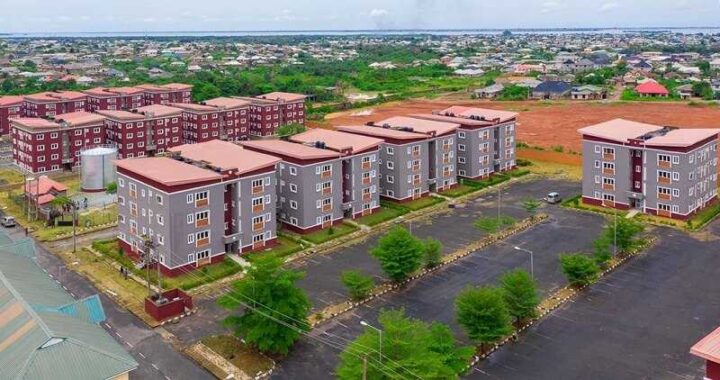Nigeria’s pension fund administrators (PFAs) have significantly increased their investments in real estate, with figures rising by 418% to N77.8 billion as of June 2025, according to fresh data from the National Pension Commission (PenCom). This marks a substantial leap from the N15.02 billion recorded in the same period last year, underscoring growing confidence in the property sector as a viable investment channel for long-term pension assets.
Analysts attribute this surge to a combination of factors, including the need for portfolio diversification, the resilience of real estate in times of market volatility, and favourable regulatory frameworks. Pension funds, which have traditionally focused on government securities and fixed-income instruments, are increasingly looking towards alternative asset classes to boost returns for retirees and contributors.

PenCom data reveals that this real estate investment drive is part of a broader trend in the pension industry, which currently manages assets worth over N20 trillion. The regulator has been encouraging PFAs to consider safe and high-yield investment opportunities that can enhance value without compromising security. Real estate, with its potential for capital appreciation and rental income, fits neatly into this strategy.
Market experts note that the Nigerian property sector has shown resilience despite economic challenges such as inflationary pressures, high interest rates, and slow GDP growth. Demand for commercial and residential spaces, particularly in urban centres like Lagos, Abuja, and Port Harcourt, has remained strong, creating a favourable environment for institutional investment.
The increase in pension fund exposure to real estate has also been aided by reforms in land administration and mortgage financing, which have helped de-risk property investment. Several PFAs are now engaging in partnerships with reputable developers to fund large-scale housing and commercial projects, ensuring that projects meet both regulatory requirements and high investment standards.
Real estate developers see the trend as a win-win situation, as the injection of pension funds into the sector not only provides them with long-term capital but also stimulates economic activity. The construction industry, which has been grappling with funding shortages, stands to benefit from sustained PFA involvement.
However, some financial analysts caution that the shift towards real estate must be managed carefully to avoid overexposure to market-specific risks such as property market downturns or regulatory changes in land use. They stress the need for PFAs to conduct rigorous due diligence and maintain a balanced investment portfolio.
PenCom has reiterated its commitment to closely monitoring PFA investments in real estate to ensure compliance with guidelines that safeguard contributors’ funds. The regulator emphasises that the priority remains the safety and sustainability of pension assets, even as the industry explores new growth areas.
The surge in property investment comes at a time when Nigeria is grappling with a housing deficit estimated at over 20 million units. Industry observers believe that pension-backed investments could play a pivotal role in bridging this gap while simultaneously generating returns for contributors.
In addition, the push towards infrastructure and housing development is aligned with the Federal Government’s broader economic diversification agenda, which seeks to reduce dependence on oil revenues. By directing pension funds towards tangible assets like real estate, PFAs can support long-term economic stability while providing social and economic benefits.
Looking ahead, stakeholders expect the upward trajectory in pension fund real estate investment to continue, especially as urbanisation accelerates and demand for quality housing grows. With Nigeria’s population projected to surpass 250 million by 2030, the need for sustainable urban development will likely intensify, creating more opportunities for pension funds to participate in property ventures.
If properly managed, the N77.8 billion currently invested could be the beginning of a more robust and mutually beneficial relationship between the pension industry and the real estate sector. For retirees, it offers the prospect of better returns on their savings, and for the broader economy, it signals a more diversified and resilient investment landscape.
Support InfoStride News' Credible Journalism: Only credible journalism can guarantee a fair, accountable and transparent society, including democracy and government. It involves a lot of efforts and money. We need your support. Click here to Donate
